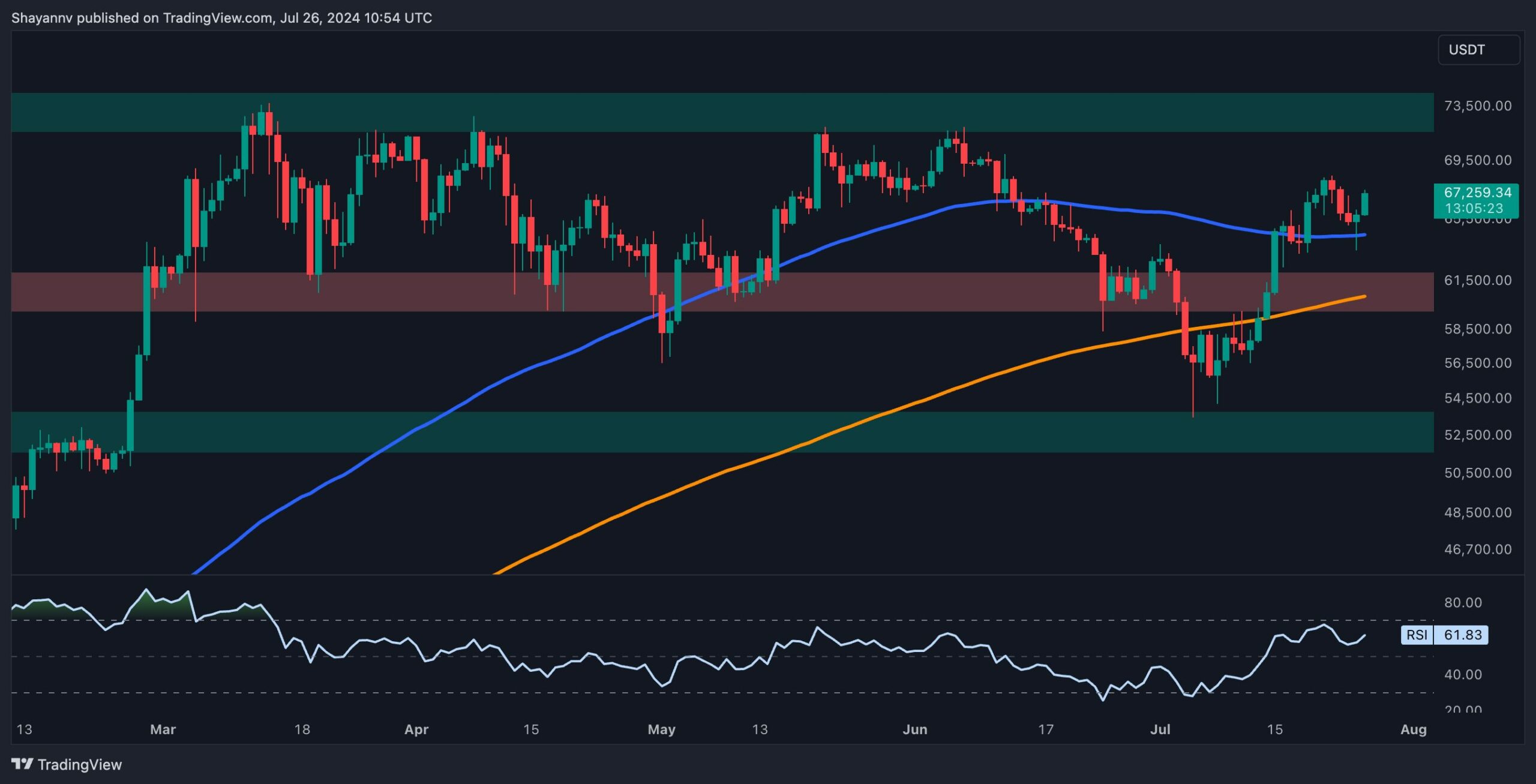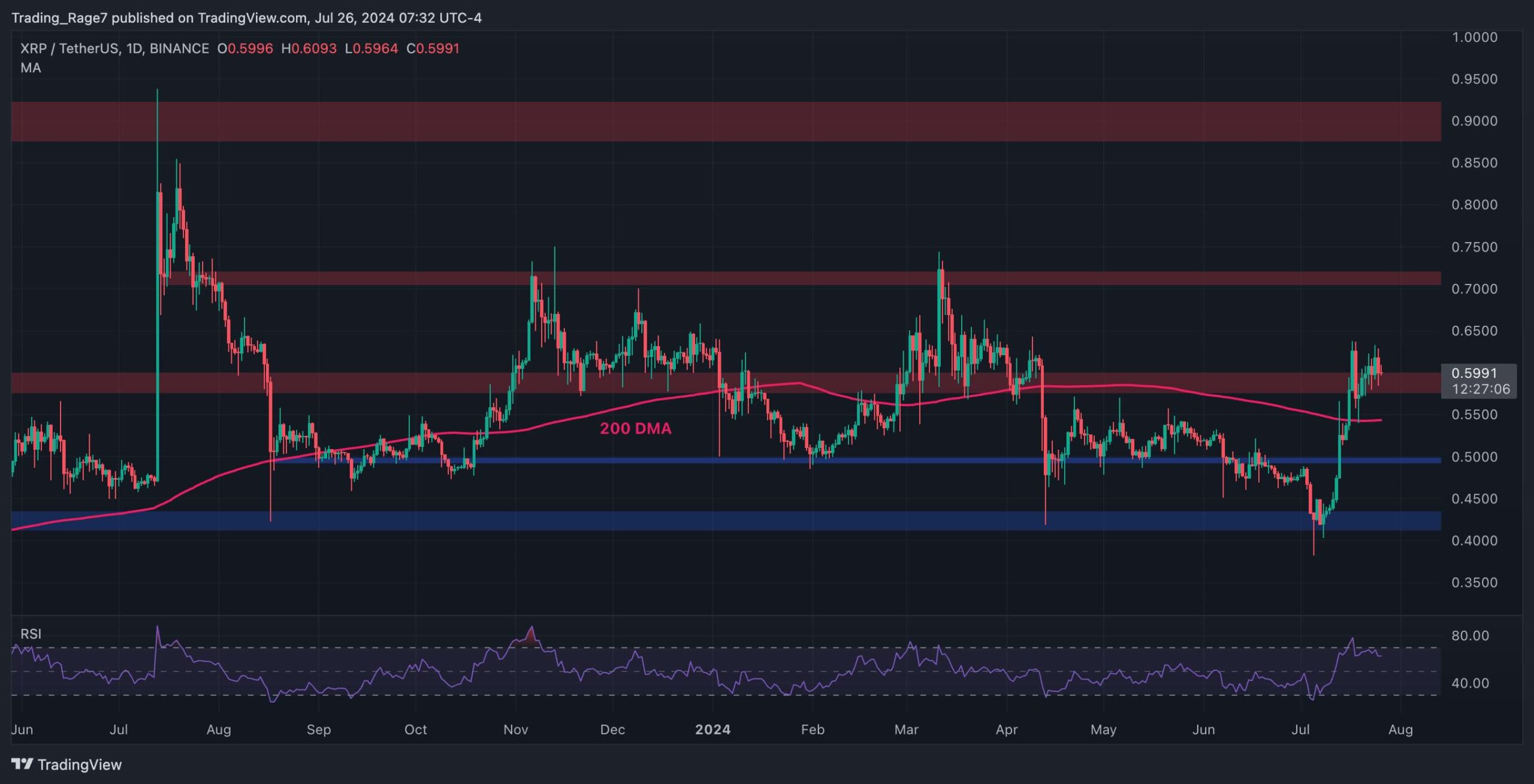Cryptocurrency
Polkadot offers money for fighting crypto fraudsters

Blockchain project Polkadot has launched Anti-Scam Bounty, an anti-crypto fraudsters program to improve the security of its ecosystem. As part of the new program, Polkadot will pay users cash rewards for helping them fight crypto fraudsters.
Users are required to find fraudulent websites, fake social media profiles and phishing apps that masquerade as Polkadot. They also need to protect Discord servers from hacker attacks. The tasks include creating training materials for users, as well as developing a special Anti-Scam toolbar to protect against fraud in the company’s ecosystem.
“Decentralizing anti-cryptocurrency scammer list efforts and moving them online is no easy task, mainly because most of the anti-scamming happens in Web2,” Polkadot said in a statement.
Each task is overseen by members of the Polkadot community. They will interact with implementers and suggest their own initiatives to better achieve results. Users will receive USD Coin (USDC) awards for helping to fight fraud. The program is now run by three mentors from the Polkadot community and two employees from the Web3 Foundation.
“The threat to Polkadot’s brand development is real, but that’s not our only concern. We don’t want Polkadot to be a free ecosystem. We want it to be a secure ecosystem where users don’t have to constantly worry about getting caught and scammers should think twice before casting their nets,” Polkadot said.
Polkadot concluded by reaching out to scammers, promising that they will have a tough time in the ecosystem.
“So pack your bags and go for it. Or better yet, get a job and stop stealing from people!” the authors of the release concluded.
We previously reported on why the collapse of FTX won’t kill the crypto industry.
Cryptocurrency
Bitcoin Price Analysis: Here’s Why BTC Jumped by 5% Today

Bitcoin has recently experienced an uptick in demand near the crucial support region of the 100-day moving average, leading to a notable rebound.
This price action underscores a bullish sentiment in the market with the potential for a continued rally toward a new all-time high.
Technical Analysis
By Shayan
The Daily Chart
A detailed analysis of Bitcoin’s daily chart reveals that following a resurgence of demand near the critical $53K support area, the cryptocurrency initiated an impulsive bullish rally, surpassing several key resistance levels and introducing a bullish sentiment into the market.
These zones include the 200-day moving average at $60.5K, the 100-day moving average at $64.4K, and the static resistance at $61K. After breaking above the 100-day MA, the price recently exhibited a corrective retracement, completing a pullback to the broken level and validating the breakout.
Currently, Bitcoin has faced heightened buying pressure near the 100-day MA and experienced a bullish rebound toward the $67K threshold. If conditions remain stable, there is potential for the bullish trend toward the significant resistance region of $70K in the mid-term to continue.
The 4-Hour Chart
On the 4-hour chart, after receiving sufficient support near the lower boundary of the multi-month wedge at $54K, the price initiated an impulsive bullish rally, reaching the wedge’s upper trendline at $68K.
This price action clearly indicates that buyers are eager to push above the $70K resistance and set a new ATH for Bitcoin in the mid-term. During the recent rally, the price has formed an ascending short-term trendline, serving as the main support for BTC in the short term.
However, Bitcoin faced increased selling pressure near the wedge’s upper boundary, leading to a notable rejection toward the upslope trendline and the $64K support region.
Yet, the cryptocurrency was supported by the trendline and the $64K threshold, initiating a new surge toward the wedge’s upper boundary. Currently, the price is confined by the dynamic support of the ascending trendline and the dynamic resistance of the wedge’s upper boundary, roughly forming a triangle pattern.
A break above the wedge’s upper trendline will pave the way for a renewed bullish surge toward the $70K threshold. Conversely, a break below the ascending trendline could lead to a retracement toward the $64K mark.
On-chain Analysis
By Shayan
While Bitcoin’s price has experienced a notable bullish reversal, a closer examination is essential to determine if this trend will persist.
The Taker Buy/Sell Ratio, a crucial metric for evaluating futures market sentiment, provides valuable insights into the market dynamics. Values above 1 indicate aggressive buying by bulls, while values below 1 suggest bearish selling pressure.
The chart highlights the Taker Buy/Sell Ratio, which has experienced an impulsive surge above the “1” threshold concurrently with Bitcoin’s bullish revival. This surge signifies strong buying interest in the perpetual market, indicating a notable bullish sentiment and significant buying activity. If the upward trend in the Taker Buy/Sell Ratio continues, it confirms a potential mid-term bullish trend, with the price likely rallying toward the $70K mark.
Binance Free $600 (CryptoPotato Exclusive): Use this link to register a new account and receive $600 exclusive welcome offer on Binance (full details).
LIMITED OFFER 2024 at BYDFi Exchange: Up to $2,888 welcome reward, use this link to register and open a 100 USDT-M position for free!
Disclaimer: Information found on CryptoPotato is those of writers quoted. It does not represent the opinions of CryptoPotato on whether to buy, sell, or hold any investments. You are advised to conduct your own research before making any investment decisions. Use provided information at your own risk. See Disclaimer for more information.
Cryptocurrency charts by TradingView.
Cryptocurrency
MEET48 “2024 GIPR2” Voting Event Final Results on August 3rd, Ranking Top on DappBay and DappRadar

[PRESS RELEASE – Singapore, Singapore, July 26th, 2024]
Recently, the “2024 GIPR2” voting event Dapp of MEET48, a metaverse virtual community based on an AI and WEB3.0 diversified UGC entertainment content ecosystem, has rapidly risen in the rankings on DappBay and DappRadar, attracting widespread attention.
The MEET48 “2024 GIPR2” voting event (https://gipr.meet48.xyz/#/gipr) is divided into the Idol Group, Sprout Group, and Virtual Idol Group. Users can log into the MEET48 official website and app, complete tasks and watch contestant videos to earn points, mint NFTs, and use points to buy voting tickets to vote for idols. The final voting rankings will determine the metaverse and overseas offline performance resources that participants will receive. Users who participate in voting interactions will also be whitelisted for future airdrop eligibility.
As of 12PM on July 26, 2024, the MEET48 event Dapp has become the number one social category Dapp on DappBay and ranked fifth in the social category on DappRadar.
According to DappRadar data, MEET48’s event Dapp recorded 25.25 million on-chain transactions in the past 30 days, with 669.98K active user addresses (UAW). In DappBay’s statistics, MEET48’s event Dapp also performed excellently, with 25.62 million on-chain transactions and 647K users in the past 30 days.
Currently, the MEET48 “2024 GIPR2” voting event Dapp has over 3 million registered users, and the total accumulated votes in the event have exceeded 10 million. These users, who joined through the airdrop, will eventually be integrated into MEET48’s intelligent social metaverse community through the MEET48 content ecosystem matrix products.
With the final results of the “2024 GIPR2” voting airdrop event set to be announced on August 3rd, MEET48’s popularity is expected to continue rising. For those who have not yet participated, there is still an opportunity to complete tasks and earn points to join the airdrop event:
https://gipr.meet48.xyz/#/gipr.
About MEET48
MEET48 currently boasts a technical and R&D team of 500 people, covering regional operations in Singapore, Hong Kong, Taipei, Tokyo, Seoul, and Dubai. This makes it one of the largest Web3 application project teams globally. MEET48 aims to achieve the mass adoption of Web3 technology by focusing on an AI UGC content ecosystem centered on AIGC (Animation, IDOL, GAME, and Comics) Gen Z trend entertainment content and a graphical, intelligent metaverse social base.
For more information users can visit MEET48’s: Official Website | Twitter (X) | Telegram | Discord
Binance Free $600 (CryptoPotato Exclusive): Use this link to register a new account and receive $600 exclusive welcome offer on Binance (full details).
LIMITED OFFER 2024 at BYDFi Exchange: Up to $2,888 welcome reward, use this link to register and open a 100 USDT-M position for free!
Cryptocurrency
Ripple Price Analysis: Is XRP Ready to Finally Explode Above $0.60?

Ripple’s price is finally gaining some bullish momentum following months of downtrend and consolidation.
By TradingRage
The USDT Paired Chart
Analyzing the XRP/USDT pair, it is evident that the price has demonstrated a rapid recovery from the $0.43 support level. It broke above both the $0.5 level and the 200-day moving average, located around the $0.55 mark.
The price is currently on the verge of breaking above the $0.59 resistance zone and if it succeeds, a rally higher toward the key $0.72 resistance level would be probable in the coming weeks.
The BTC Paired Chart
The BTC paired chart also displays a similar behavior. The market has rebounded and broken above the 800 SAT level. Yet, the price has yet to break through the 200-day moving average, located around the 900 SAT mark.
Typically, a rise above the 200-day moving average indicates the beginning of a new uptrend. Therefore, if a breakout occurs, XRP will likely significantly appreciate against BTC in the short term.
Binance Free $600 (CryptoPotato Exclusive): Use this link to register a new account and receive $600 exclusive welcome offer on Binance (full details).
LIMITED OFFER 2024 at BYDFi Exchange: Up to $2,888 welcome reward, use this link to register and open a 100 USDT-M position for free!
Disclaimer: Information found on CryptoPotato is those of writers quoted. It does not represent the opinions of CryptoPotato on whether to buy, sell, or hold any investments. You are advised to conduct your own research before making any investment decisions. Use provided information at your own risk. See Disclaimer for more information.
Cryptocurrency charts by TradingView.

 Forex2 years ago
Forex2 years agoForex Today: the dollar is gaining strength amid gloomy sentiment at the start of the Fed’s week

 Forex2 years ago
Forex2 years agoHow is the Australian dollar doing today?

 Forex2 years ago
Forex2 years agoUnbiased review of Pocket Option broker

 Forex2 years ago
Forex2 years agoDollar to pound sterling exchange rate today: Pound plummeted to its lowest since 1985

 Cryptocurrency2 years ago
Cryptocurrency2 years agoWhat happened in the crypto market – current events today

 World2 years ago
World2 years agoWhy are modern video games an art form?

 Stock Markets2 years ago
Stock Markets2 years agoMorgan Stanley: bear market rally to continue

 Economy2 years ago
Economy2 years agoCrude oil tankers double in price due to EU anti-Russian sanctions































